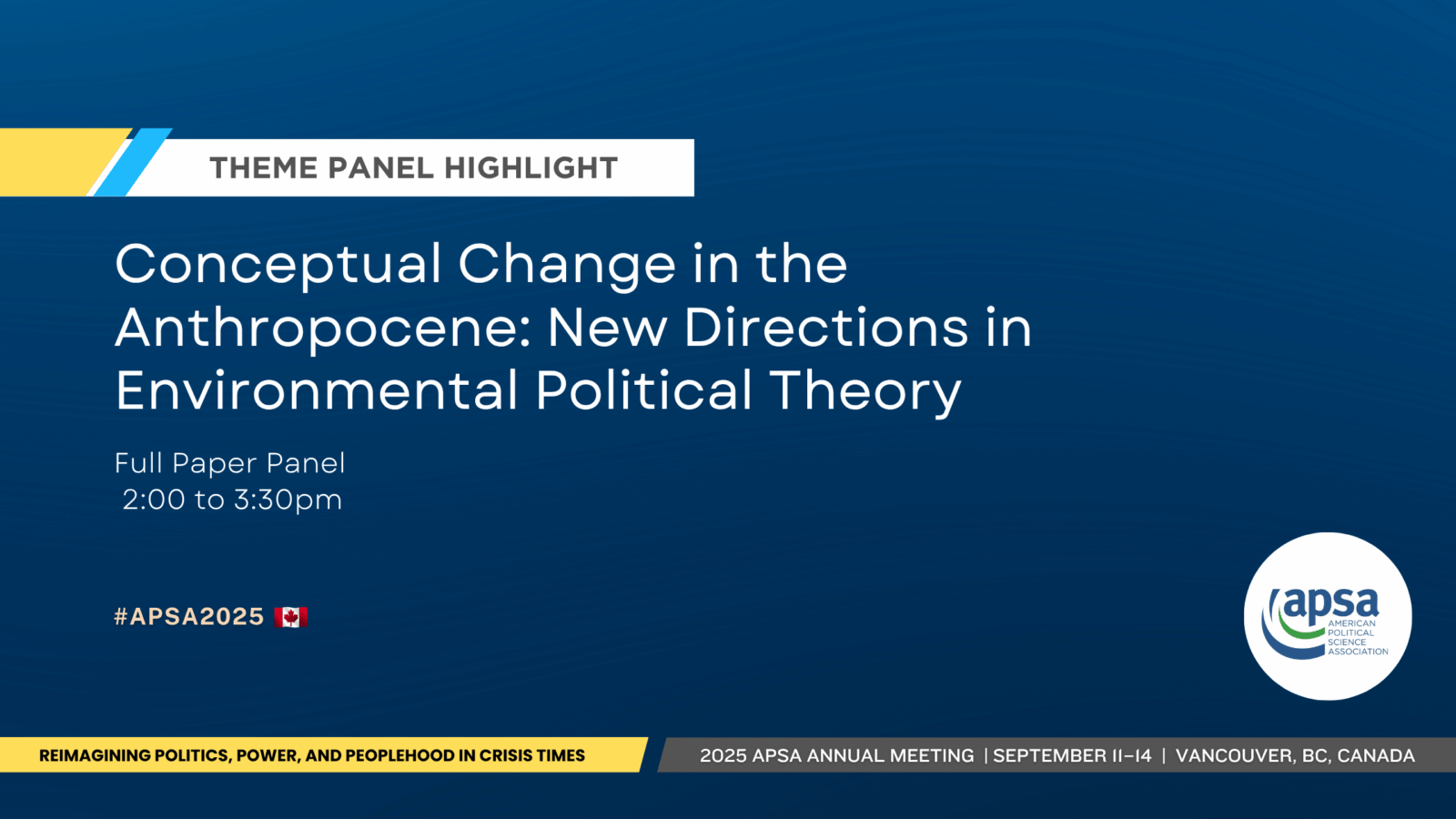
Theme Panel: Conceptual Change in the Anthropocene: New Directions in Environmental Political Theory –
How did your country report this? Share your view in the comments.
Diverging Reports Breakdown
Theme Panel: Conceptual Change in the Anthropocene: New Directions in Environmental Political Theory –
In the face of unprecedented climate catastrophe scholars have argued for the necessity of constituting a new vision of earth. One prominent line has argued for decentering the human experience in climate catastrophe to make room for thinking about how we are but one part of a broader earth system that existed long before we did. The other prominent line of thinking urges that appealing to the problem of economic domination on a global scale can render quick political action from the grassroots level to address the environmental problem. This paper argues that both approaches face what I call the “addressee problem” Both appeal to an unknown addressee, a not yet known movement or set of actors who are to take on the work of establishing a path towards building an environmental politics. The issue, they realized, was distinct from creating a people through the container of a nation-state or even through the appeal to a federation.
In-Person Full Paper Panel
Participants:
(Chair) Niklas Plaetzer, University of Chicago
(Discussant) Alyssa Battistoni, Barnard College
Session Description:
In the face of unprecedented climate catastrophe scholars across the environmental humanities including those within political theory have argued for the necessity of constituting a new vision of earth. This desired new vision primarily revolves around how to position the place of the human in environmental devastation. One prominent line has argued for decentering the human experience in climate catastrophe (Chakrabarty, Bennett) to make room for thinking about how we are but one part of a broader earth system that existed long before we did. Decentering the human in our understanding of earth reorients our political visions, and ultimately our actions, so to approach the environmental question from a holistic perspective that honors the environment prior to honoring any economic commitment. For these scholars, the question of economic domination would be resolved through a holistic treatment of the earth system and our place in it. The other prominent line of thinking urges that appealing to the problem of economic domination on a global scale can render quick political action from the grassroots level to address the environmental problem, a problem that is notoriously time-bound.
This paper argues that both approaches face what I call the “addressee problem.” Both appeal to an unknown addressee, a not yet known movement or set of actors who are to take on the work of establishing a path towards building an environmental politics. Both approaches assume such addressee will be global in their orientation. This appeal would be enriched, I argue, by returning a set of actors and moment in time and where a global vernacular about a shared world and earth was lost.
The 1970s marked a turning point in global politics. Often treated as a decade delineating the foreclosure of the end the “global sixties”: an era defined by the ability of several movements from the Civil Rights movement to Black Power, and African and Caribbean anticolonial struggles to speak to one another and to be understood in a shared vernacular about where the locus of their domination lay. The decade also marked the beginning of an era where the recognition of a shared earth became central to debates over how an ever present globalizing economic order should be constituted. The decade has often been referred to as the temporal site of the rise of a modern neoliberal politic, one that has foreclosed the possibility of a kind of grassroots global vernacular and set of movements established in the 1960s, replaced instead by an economic vernacular that established the concept of a shared earth through the prism of economic extraction. Amidst this unravelling of grassroots tradition, some activists associated with these movements continued to think about what kinds of politics were necessary for addressing this new vision of earth architected by economic and political global elites.
I turn to two itinerant Black activists known for their work articulating the connection between land, sovereignty, ecology, and labour on a local and global scale between 1967 and 1975: Audley Moore and Pauluu Kamarakafego. I argue that their theories around creating local and global politics amidst the nadir of grassroots global movements reveals a type of grammar they found necessary for establishing a shared vernacular bring an earth bound orientation towards global politics into existence, as well as tracking the difficulty they faced in imagining how to build such a vision. Much of the difficulty arose around appealing to a not-yet known addressee, or one that was in a state of fracture. The issue, they realized, was distinct from creating a people through the container of a nation-state or even through the appeal to a federation. A new vision of what constituted a people needed to created in tandem with creating a new vision of earth.
